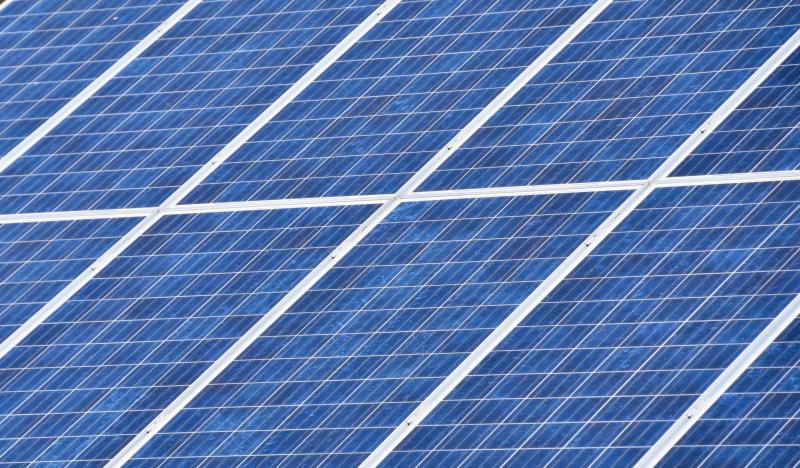A change in the way owners of solar systems are reimbursed for excess electricity pumped back into the electrical grid has jolted some Lewes homeowners.
“Solar has been great. Everything I use is paid for,” said Jay Tomlinson, a Lewes resident who installed roof-top solar panels nine years ago.
But now electric utility companies are changing the way they handle solar energy credits.
At the end of July, the Delaware Electric Cooperative sent letters to about 2,600 members informing them that the process of carrying over excess kilowatt hours year-after-year will discontinue. Credits generated each month by solar panels that deliver more energy into the power grid will be zeroed out at the end of the billing period, and payouts will be made in the form of a billing credit, the letter states.
“While DEC is the first Delaware utility to be transparent about these changes, the new law impacts all Delawareans who have installed solar on their home or business,” said Lauren Irby, public relations manager for DEC.
About 200 members responded to DEC’s July letter over concerns that their credits would be lost during the winter months when credits help offset higher energy bills the most.
“We agreed, and in response to member’s concerns, we changed the [kilowatt] expiration date to March,” Irby said.
A second letter was mailed to members in mid-August, she said.
The consolation, however, is minimal for some members.
“I will essentially be giving kilowatt hours to DEC to sell at market rate,” Tomlinson said.
Meanwhile, he said, the excess credits will be calculated at a lower supply rate.
DEC has slowly been increasing costs, Tomlinson said. Up until a year ago, he said, his credits covered a $16-per-month charge for fixed costs such as line maintenance. “I never had to pay that before,” he said.
Other electric companies have always charged customers for fixed costs.
Credits built up month-to-month will still be allowed to carry over, Tomlinson said, but at the end of the year, anything left over will be lost. He said he has never cashed in on his credits, but since this is the last year he will be allowed to do so, he may cash in on his roughly 1,000 kWh credits.
Lewes resident Dave Miller installed solar panels in 2016, and carries over 3,000 credits each month worth about $210. He said he’s been paying $16 per month for fixed costs for about two years now, nearly double from the fixed cost charges before 2016, which had been covered by his excess energy production.
“I’m not aware of anywhere else that the government has ever taken something from residents and given it to a company. It's a nice gift to the electric utilities,” he said.
Senate Bill 298, signed into law in July by Gov. John Carney, after breezing through the General Assembly with only two no votes, allows all Delaware utility companies to stop allowing customers to carry over solar credits annually. With more people supplying solar energy into the power grid, changes are needed to maintain “societal benefits programs,” said Sen. Stephanie Hansen, D-Middletown, the prime sponsor of the bill. Sen. Ernie Lopez, R-Lewes, was a co-sponsor.
“Consumers who are credited full retail value of energy are not paying for things such as the cost of building and maintaining the transmission and distribution lines used to move the energy around. They are not paying for upgrades to the transmission and distribution lines to accommodate the new technologies we now need to move to more renewable energy sources. They’re not paying for the labor and materials to respond and rebuild downed power lines after a storm. And they’re not paying for the handful of societal benefits programs that are required in our code and that everyone else is paying for,” she wrote in a posted analysis of solar credits.
The benefit programs are the Low-Income Fund and the Green Energy Fund, subsidized by people who pay their electric bills.
Miller said he disagrees with Hansen’s analysis, and points to a case study that argues utility companies are undercompensating customers for net metering.
In an email sent Aug. 16 to Hansen and area legislators, Miller asked that people who bought their solar units before the law was passed be grandfathered in. “We paid a lot to install our system,” Miller said.
On the horizon, however, is Net Metering 2.0. Hansen refers to it as “a huge multiparty undertaking with all sides having a lot at stake,” and an Energy Stakeholders Group has already been meeting twice a month throughout the summer to discuss it.
SB 298 gives Delaware time for stakeholders to develop new legislation to regulate net metering in the future, Hansen said. “This will allow the municipalities and the co-op to continue accepting net metering customers and will buy us another two to three years to get Net Metering 2.0 in place,” she writes.
Miller said he expects to get involved.
“I’ll try to get in front of that one instead of being caught by surprise,” Miller said.
Melissa Steele is a staff writer covering the state Legislature, government and police. Her newspaper career spans more than 30 years and includes working for the Delaware State News, Burlington County Times, The News Journal, Dover Post and Milford Beacon before coming to the Cape Gazette in 2012. Her work has received numerous awards, most notably a Pulitzer Prize-adjudicated investigative piece, and a runner-up for the MDDC James S. Keat Freedom of Information Award.
















































